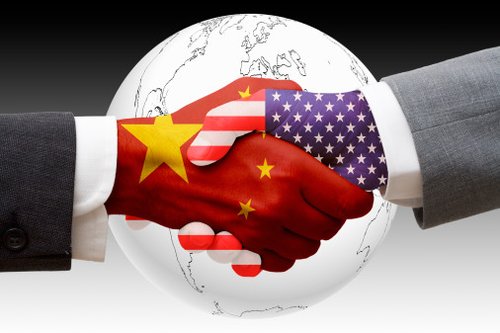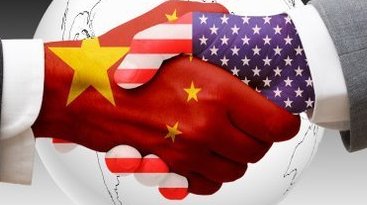US should 'attune itself to China's rise'
China Daily, June 16, 2014 Adjust font size:
The United States must understand and accept that China's rise is inevitable, and both countries, one an established and the other an emerging power, must find an accommodation, Singaporean Minister for Foreign Affairs and Law K. Shanmugam said.

Shanmugam, who has just concluded a visit to China, was interviewed by China Daily in Beijing on Thursday.
History has a number of examples where this type of accommodation has failed to materialize and led to catastrophic consequences.
So the big question is what sort of accommodation can China and the US establish, Shanmugam said.
His comments came as Washington's Asia pivot and China's growing clout in the Asia-Pacific region have resulted in increased regional tension, with countries in the region expressing growing concern about stability.
During the Shangri-La security dialogue in May, a "war of words" erupted between China, the US and other nations with competing maritime claims.
As an Asian country with long-established contacts with the West, Singapore feels it is able to utilize its unique position and act as a bridge for countries in and outside the region.
Calling Singapore a friend of China, Shanmugam said China should try various routes to address issues relating to other countries, while outsiders must realize the huge domestic challenges it faces.
China now faces an aging society, the underdeveloped western region and income disparity, and sovereignty issues that cannot be compromised.
"China doesn't seek or want a troublesome external environment. So how do you make sure it's not troublesome? It is going to require wisdom, tact and diplomacy," Shanmugam said.
The Asia-Pacific region, while becoming the world's economic engine, is seeing profound geopolitical changes. In addition to the impact of the US Asia-pivot policy, Japan, after six decades of the Pacifist Constitution, is reconsidering the role it can play in regional security, amid an islands dispute with China.
China and several ASEAN members have seen their ties stalled over competing maritime claims in the South China Sea.
Shanmugam also warned of a nervous Japan re-arming itself, which is in no one's interests.
"Japan is a technologically very advanced country. It's better that Japan is not nervous and stays under the US nuclear umbrella, and at the same time everything remains stable while there's the economic progress."
He also reminded China of the importance of public opinion in other countries. "You have to accept that public opinion in many countries is being influenced against China. It's not good for China ... once it hardens."
This was Shanmugam's third visit to China in his three years as foreign minister, and he met Vice-President Li Yuanchao and top diplomats, including State Councilor Yang Jiechi and Foreign Minister Wang Yi.
In 2013, Singapore was the largest foreign investor in China and China's second-largest trading partner of the 10 ASEAN countries.
Trade volume between the two countries reached $91.4 billion in 2013, up 11 percent year-on-year, according to International Enterprise Singapore.
Singapore is also the largest offshore RMB clearing center outside the Chinese mainland and Hong Kong.
The year 2015 marks the 25th anniversary of bilateral ties being established between the two countries.
Shanmugam said the two countries want to mark the anniversary with high-level state visits on both sides.
As the coordinating country for China-ASEAN relations from 2015, Singapore will exert itself to push forward bilateral cooperation, he said during a meeting with Yang.


